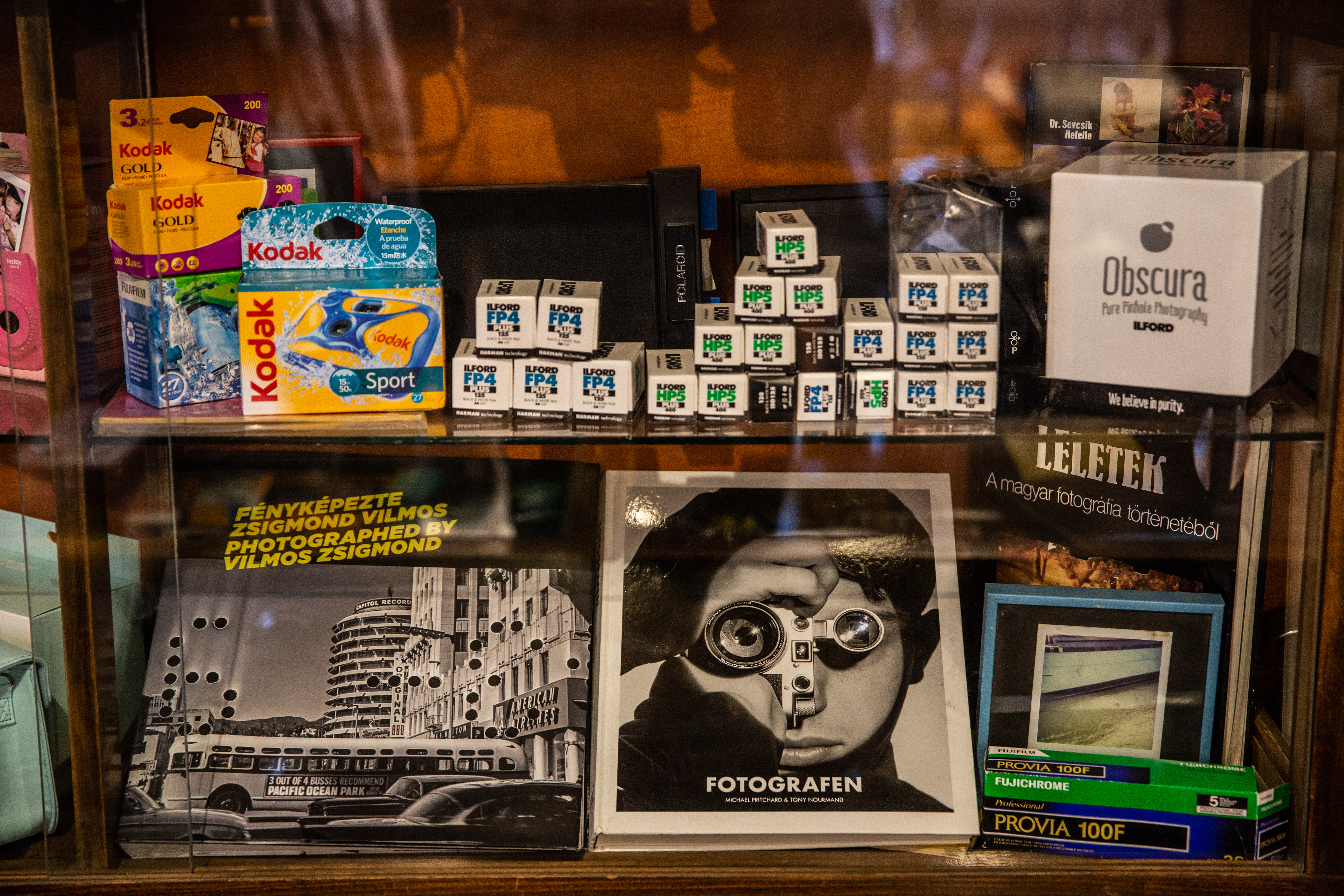In the diverse, culturally vibrant area behind the National Museum, Főfoto (‘Main Photo’) is a café, gallery, laboratory and camera centre. Most of all, it flies the flag for analogue photography. Set in a private flat, this brainchild of Gábor Zsigmond and János Krasznai should become another cult destination to add to the many in the vicinity.
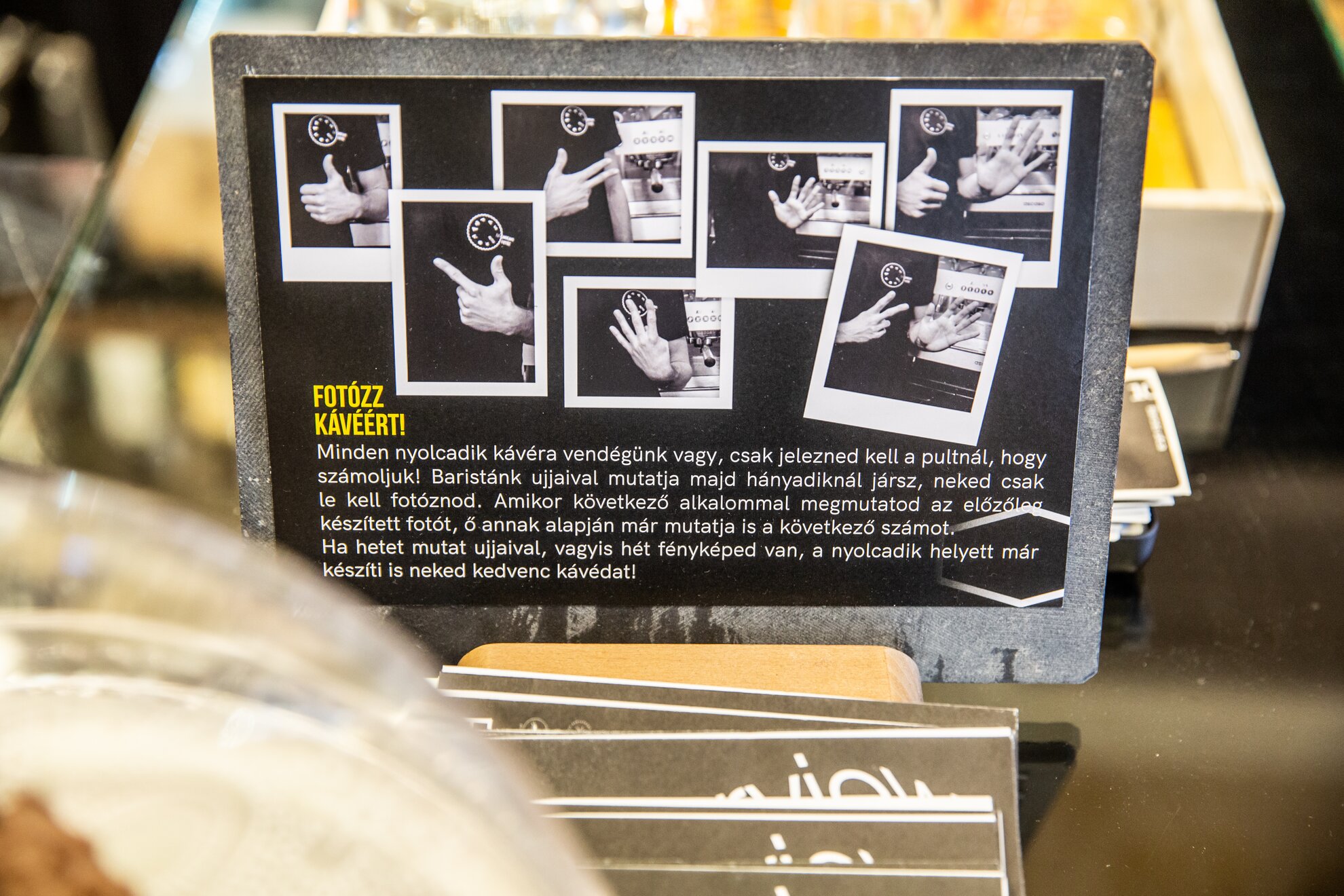
Long prevalent in foreign capitals, exhibitions in private homes and pop-up galleries are gaining popularity in Budapest. A former private lodging behind Kálvin tér has long been empty but today houses the long-cherished dream of János Krasznai and Gábor Zsigmond to combine gallery, café and refuge for analogue photography: Főfoto.
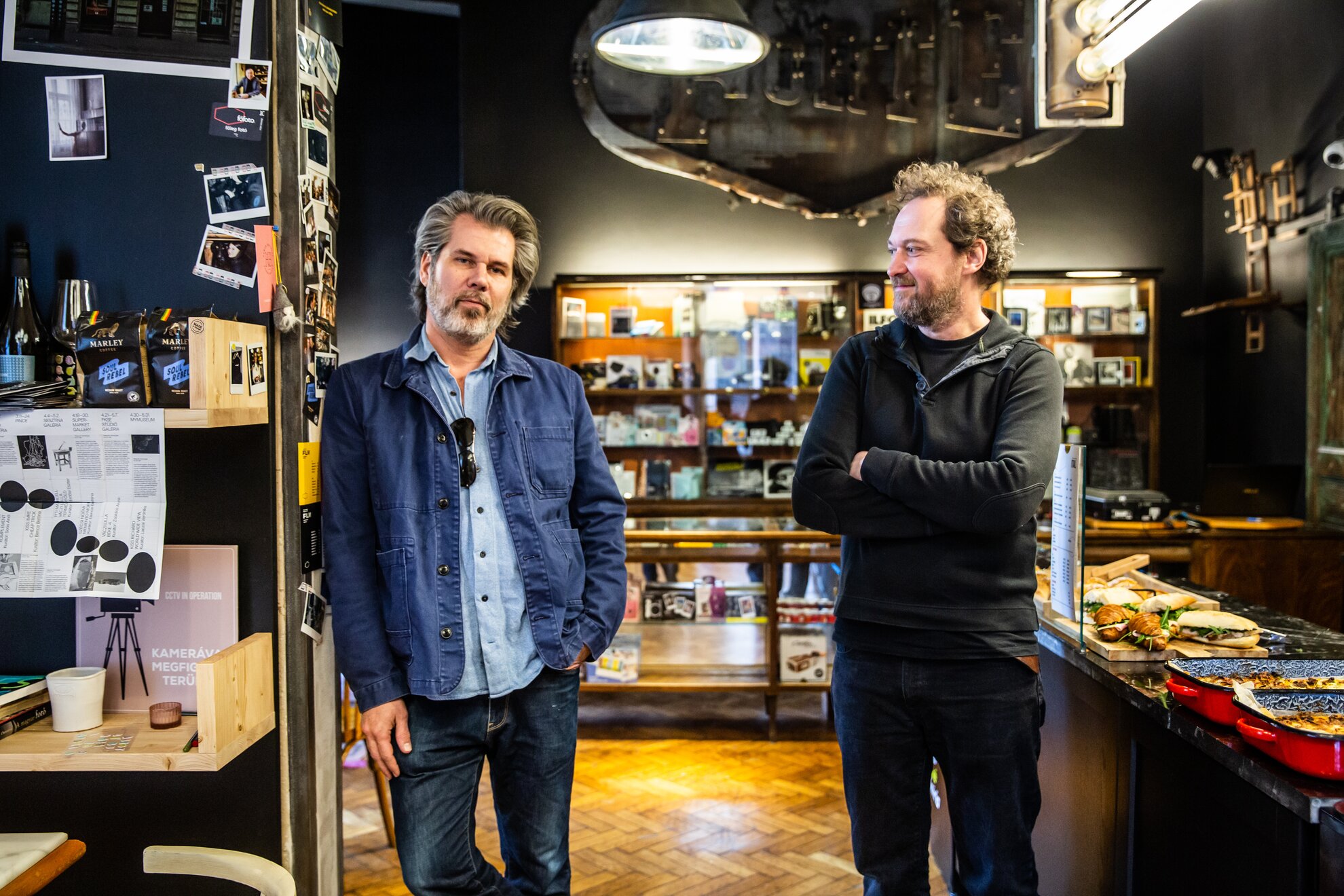
János and Zsigmond were together at primary school, before beginning their careers as first-generation advertising photographers in post-transition Hungary. Gábor travelled down other paths, including the TV channel Film Museum, but their lives have always dovetailed. Their idea for Főfoto has been knocking around for years, and has finally been realised in a private flat on Baross utca.
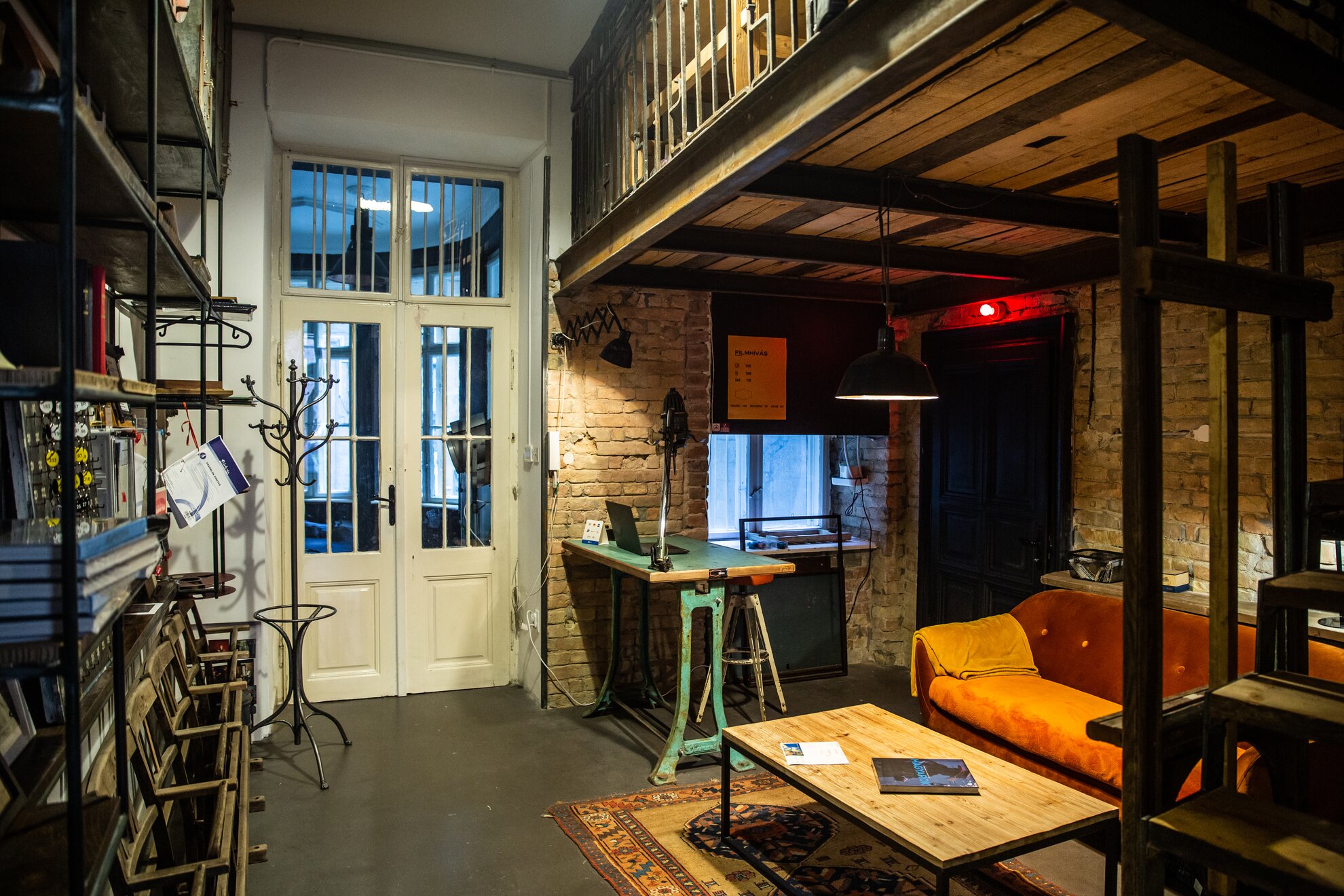
Just above the Fecske bar, nothing from the street indicates anything special. Standing at the main door, you press the doorbell as if you were visiting friends. But a quick left turn by the staircase and you could be in trendiest Berlin. Indeed, part of the charm of Főfoto is its unorthodox entrance.
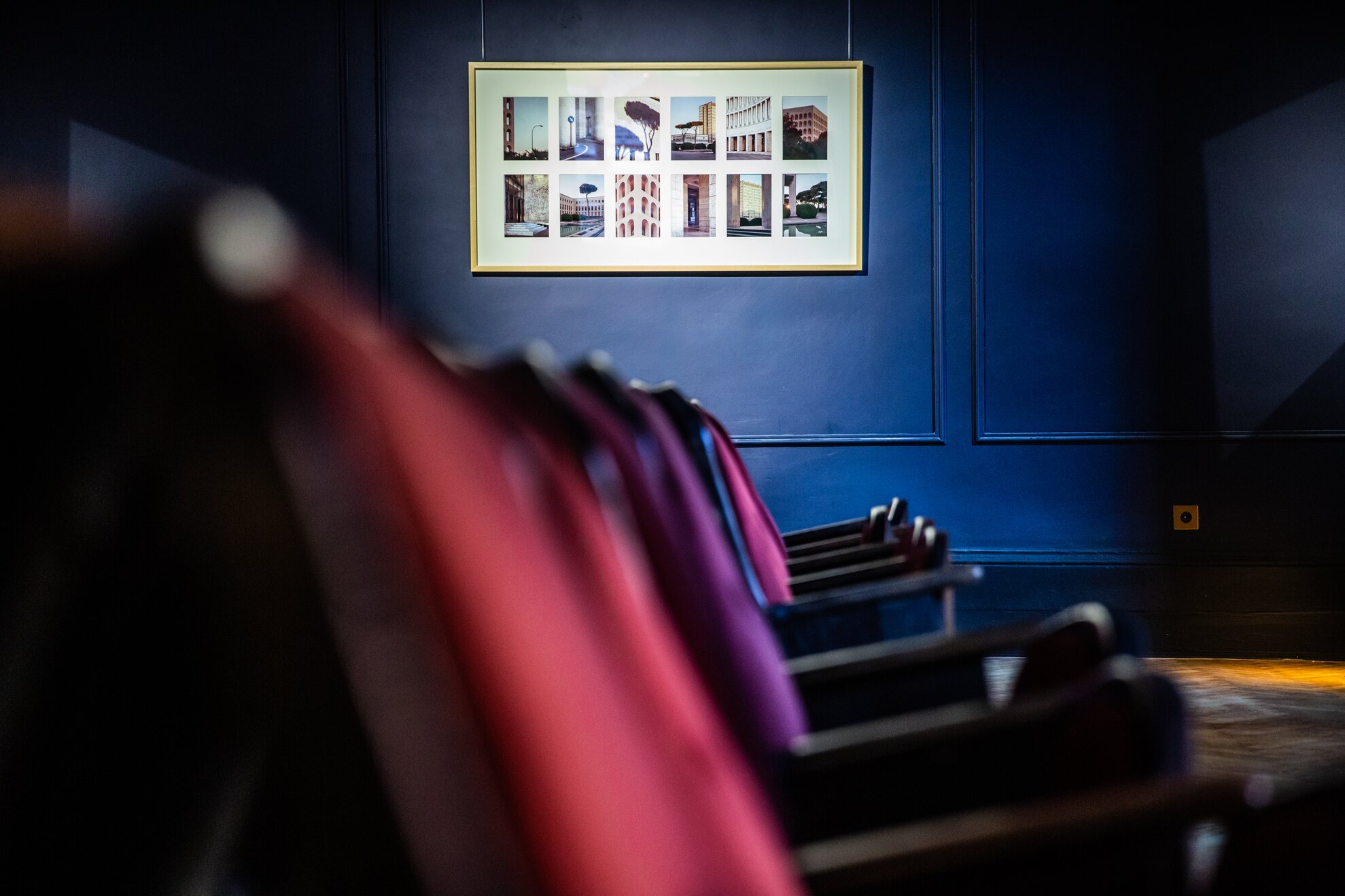
This owner-renovated apartment is worth a visit even for a coffee, but if you are interested in photography and film history, you will have a complete museum experience. Just to the right of the entrance is an old-fashioned row of seats that János salvaged from a 1920s’ cinema in Mór – the chairs are still in working order, giving the impression that you could be sitting down to watch a silent movie.
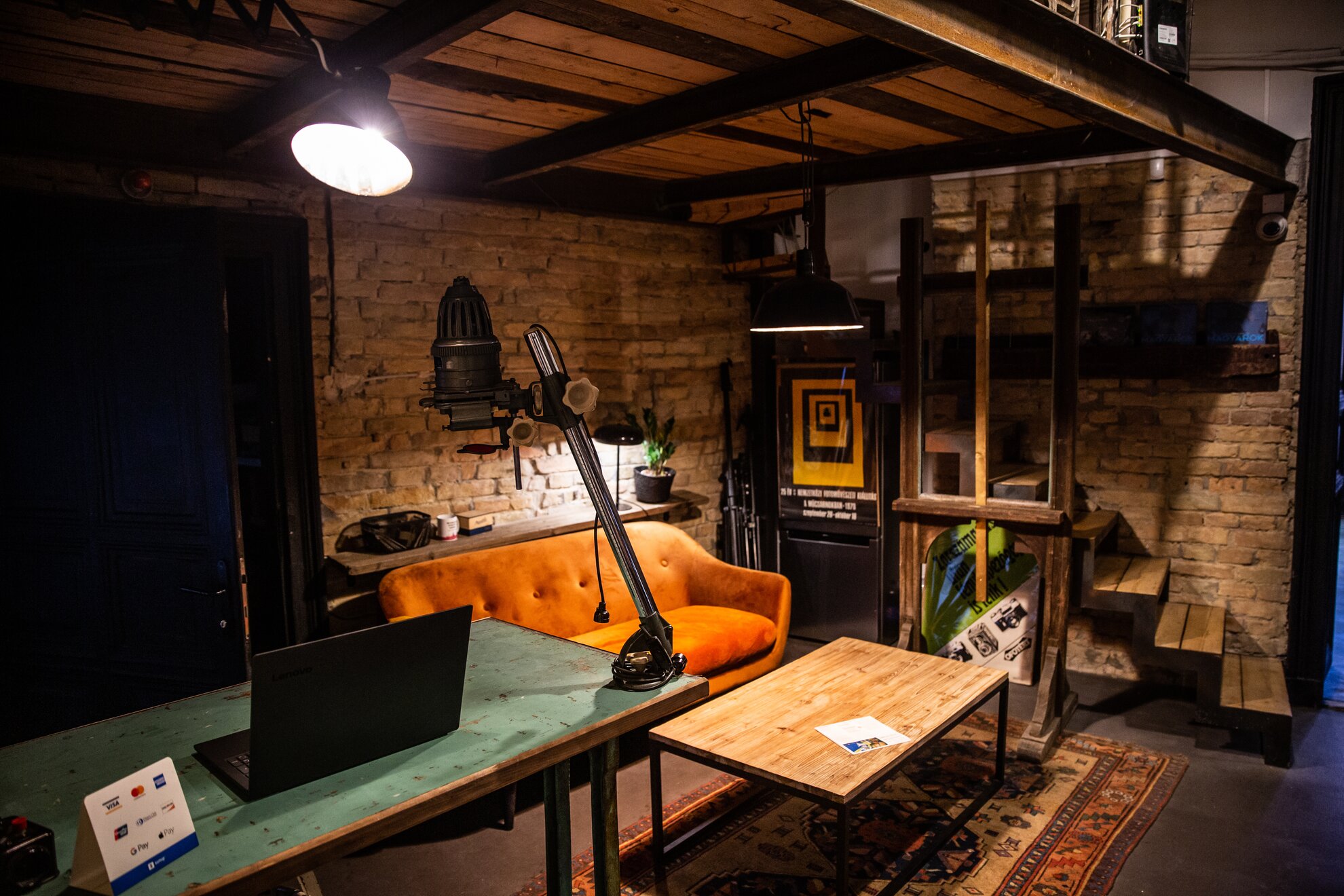
In the next room, where the gallery is located, a sofa recommissioned from the Uránia National Film Theatre two renovations ago, has – hopefully – found its final resting place. Right now, you can sit back here and admire Matti Varga’s exhibition After August, with more shows by young photographers scheduled.
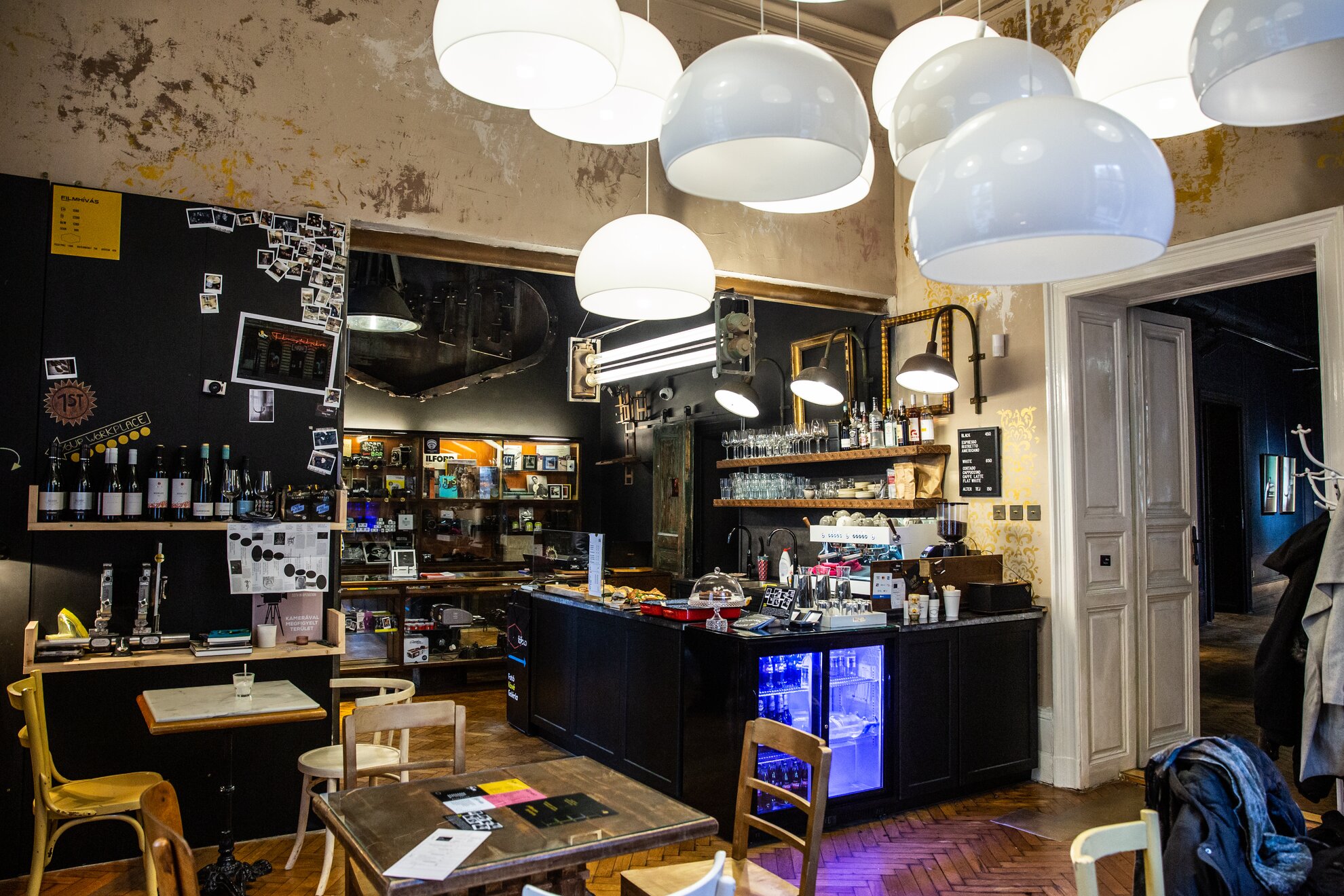
Turning into the café-shop space, you will also find many exciting design elements: the huge white lampshades above the tables came from the boardroom of Hungarian TV, while 1950s’ cameras, films and slides sit in an old jewellery counter from Szarvas, lit by the same lamps that once illuminated the legendary MTK football stadium.
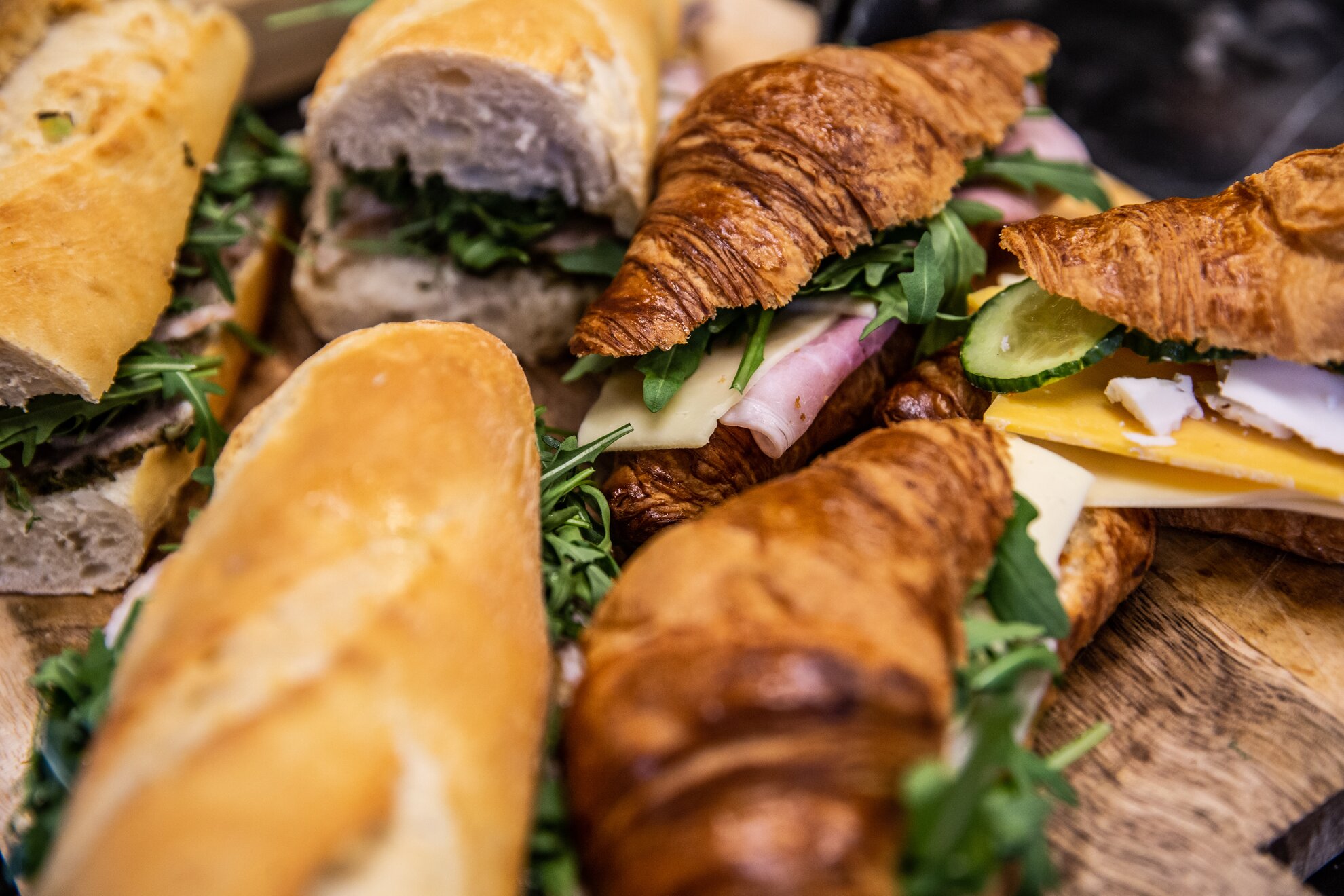
The real curiosity is also above the photo counter: after clear the rights, of course, Gábor and János took the logo from the former Forte film and photo-paper factory in Vác to save at least that much for posterity. Many other interesting artefacts have been collected over the decades – it’s impossible to list them all, but you can certainly lose yourself for half an hour even if you’ve just nipped in for a coffee. While the focus of Főfoto is analogue photography, its café credentials are sound, with freshly made sandwiches, sweet and savoury pastries, as well as coffee, tea, quality beer, wine and soft drinks.
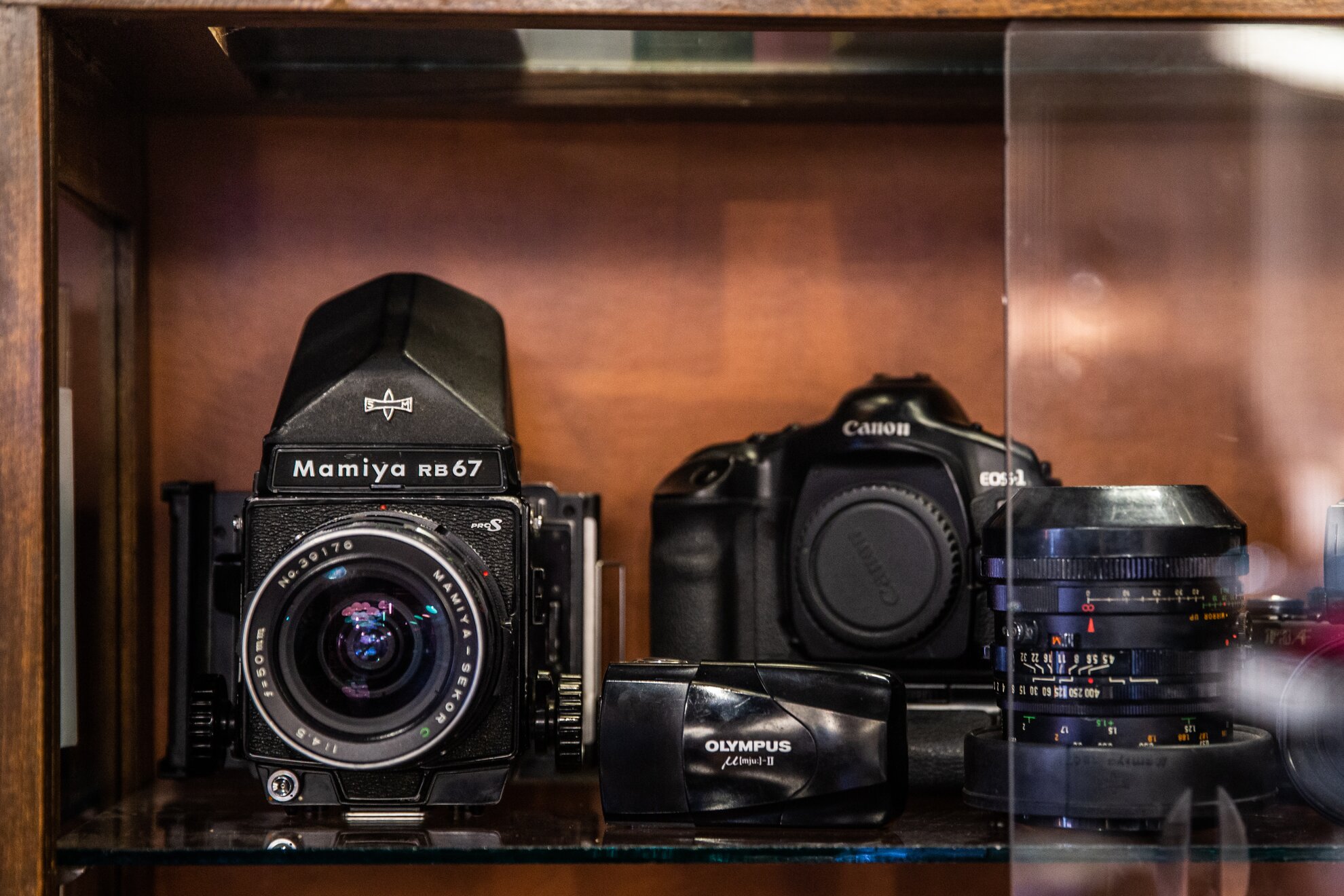
Obviously back in the ’90s, Gábor and János used pre-digital cameras and techniques, which they still prefer to this day. “Analogue photography allows us to slow down in our digital world, which prompts young people to want to use it as well, despite growing up with digital,” says Gábor.
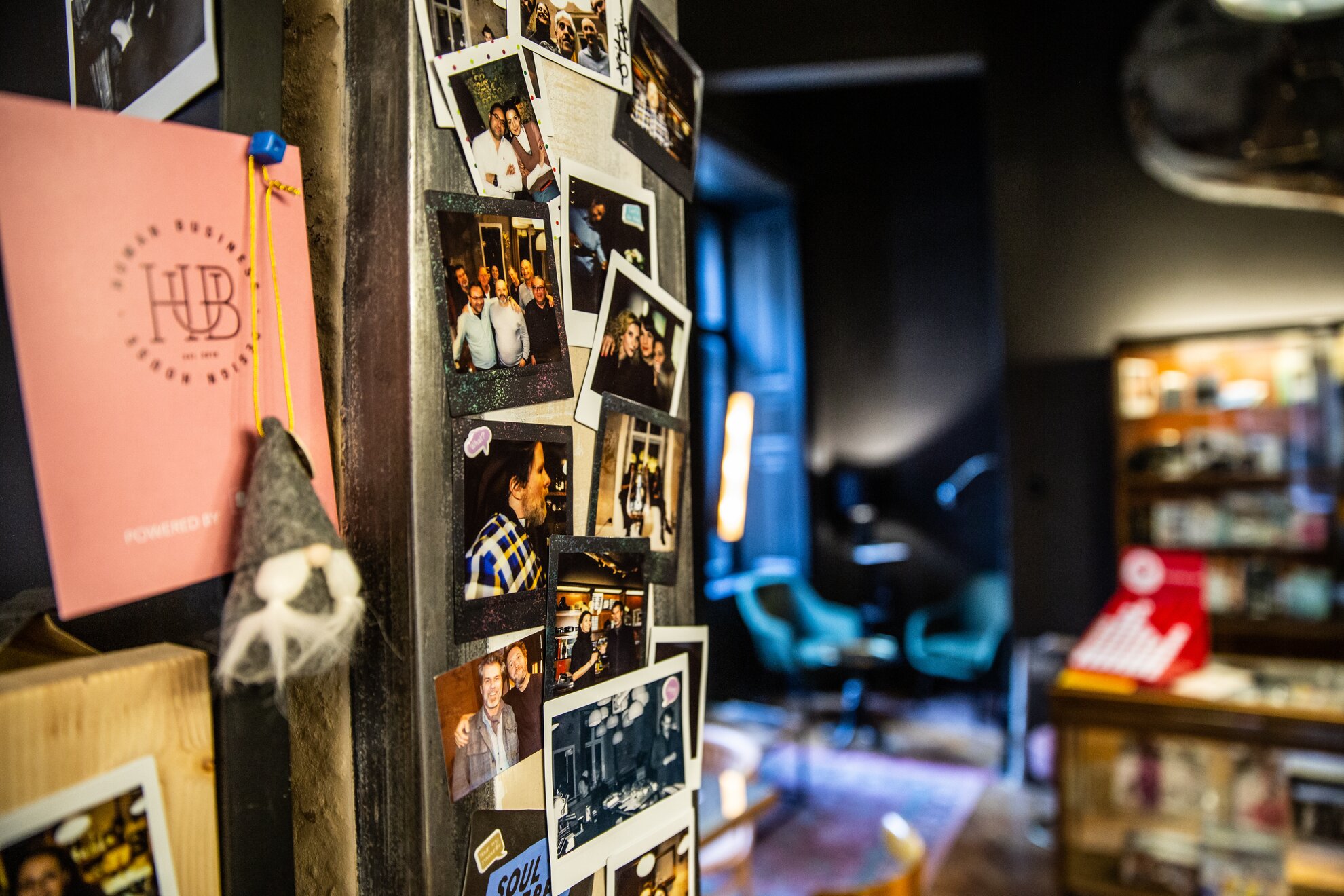
At the aforementioned jewellery counter, you find a range of props and accessories, colour and black-and-white film reels, projectors, filmstrips, textbooks, analogue cameras, old Polaroids, as well as a whole wall of Instax machines. Főfoto also operates as a laboratory, developing photos with one to three days’ notice, and you can try enlarging for yourself. The team is happy to help anyone who would like to get more acquainted with analogue. “More and more visitors people are turning up with analogue machines handed down in the family and would like to learn how to use them. We help to show them how they work, and it feels great when they come back all excited with their first pictures,” says Gábor.
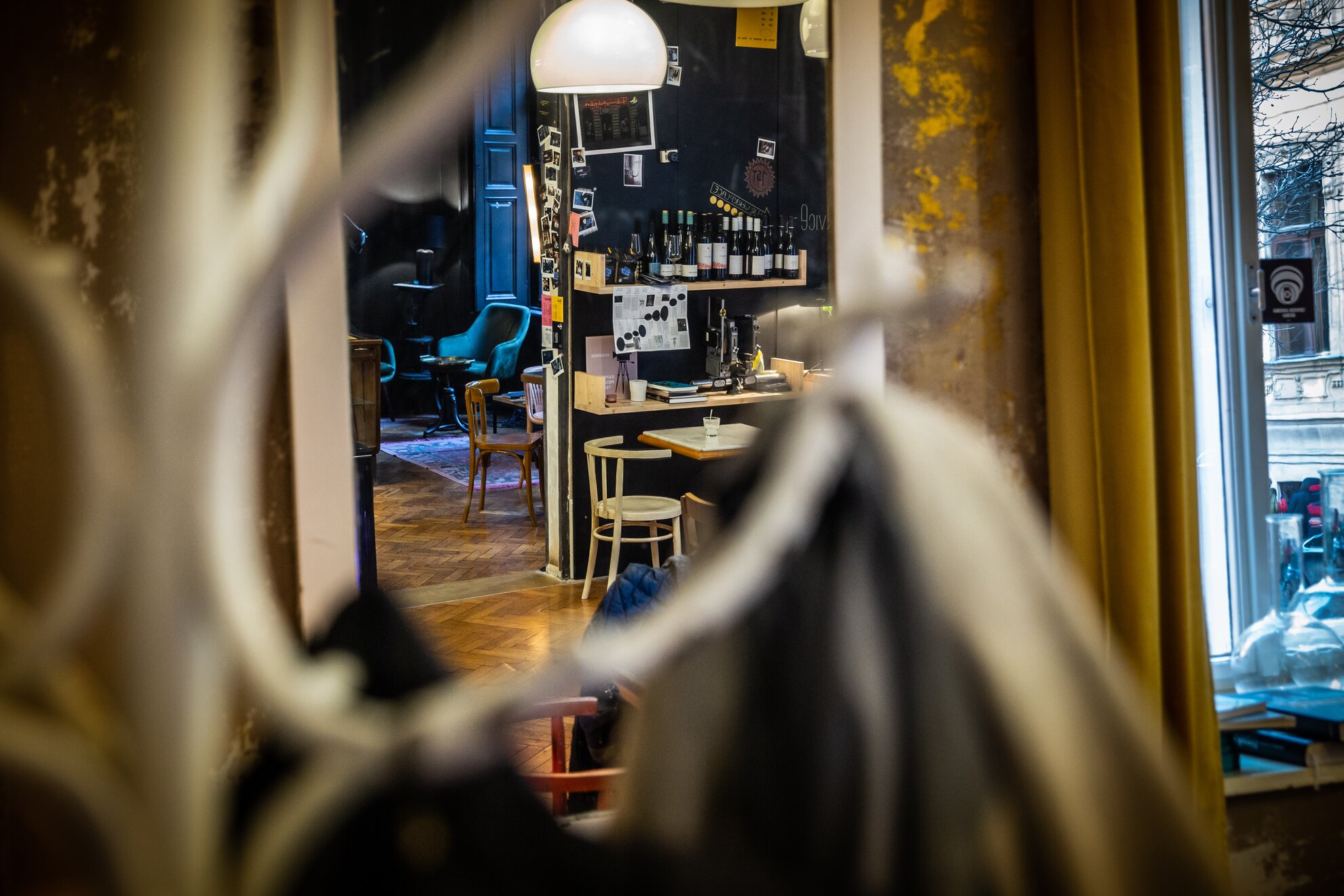
This four-in-one business might also grow a fifth arm: a kind of analogue photography school may develop if demand allows. Short-term plans include a two-day photo workshop where you can take in the basics, with the Fiatalok Fotóművészeti Stúdiója (FFS, Young Photo Artists’ Studio) organising open lectures on Wednesdays and slideshows for younger ones at weekends.
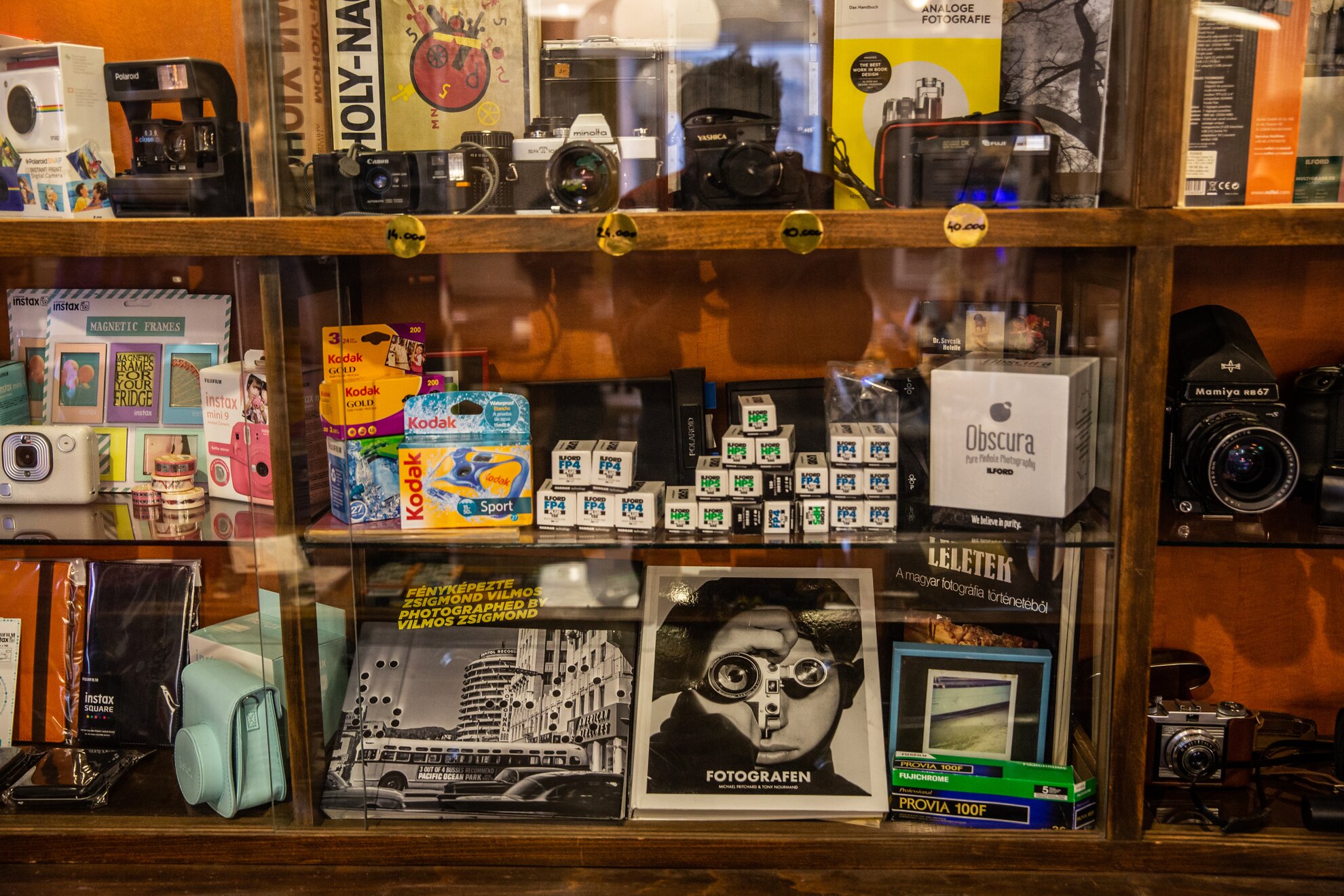
The special charm of Főfoto is there for all to see, almost guaranteeing repeat custom whether you’re just here for a coffee or to find out more about a reviving art form.
Főfoto
District VIII. Baross utca 10/fsz 10, doorbell 1
